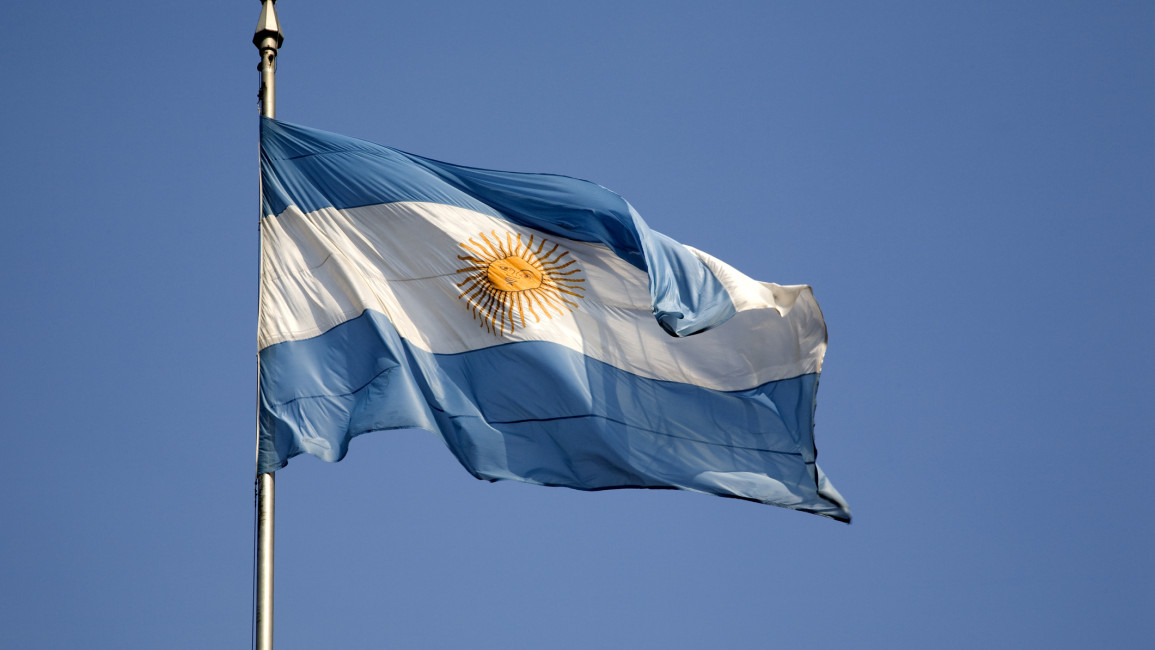Argentine court blames Iran and Hezbollah for deadly 1994 Jewish centre bombing
Argentina's highest criminal court reported a new development Thursday in the elusive quest for justice in the country's deadliest attack in history, the 1994 bombing of a Jewish community centre headquarters, concluding Iran had planned the attack and Lebanon's Hezbollah militant group had executed the plans.
In a ruling obtained by The Associated Press, Argentina's Court of Cassation deemed Iran and its Lebanese proxy, Hezbollah, responsible for the bombing in Buenos Aires that levelled the community centre, killing 85 people, wounding 300 and devastating Latin America's biggest Jewish community. The court said the attack came in retaliation for Argentina reneging on a nuclear cooperation deal with Tehran.
Alleging Iran's "political and strategic" role in the bombing, the Argentine court paved the way for victims' families to bring lawsuits against the Islamic Republic. In the past three decades, Iran has not turned over citizens convicted in Argentina. Interpol arrest warrants have led nowhere.
"The significance of these grave human rights violations for the international community as a whole invokes a state's duty to provide judicial protection," the ruling said, declaring the bombing of the Argentine Jewish Mutual Aid Association community centre a "crime against humanity."
The court decision came as no shock. Argentina's judiciary has long maintained Iran was behind the attack, chilling relations between the countries, particularly after the collapse of a joint investigation. Iran has denied involvement. A spokesperson for Hezbollah, Israel's archenemy on its northern border, did not immediately respond to a request for comment.
What some said they found shocking was the court's failure to provide concrete evidence of Iran's direct involvement or shed new light on the case after 30 years of setbacks and scandals.
"I would never rule Iran out, it's certainly on the list of suspects, but let's do something specific to rule it in," said Joe Goldman, who co-authored a book about the winding investigations into the Jewish community centre attack as well as bombing of the Israeli embassy in Buenos Aires that killed more than 20 people in 1992. "That would be a serious investigation that we haven't seen."
The court singled out top Iranian officials and paramilitary Revolutionary Guard commanders in its determination that Iran carried out the bombings in response to Argentina scrapping three contracts that would have provided Tehran with nuclear technology in the mid-1980s. Its conclusions were based on confidential intelligence reports.
Past inquiries into the bombings have turned up indictments, not just against Iranian officials but also two former Argentine presidents. In 2015, the chief prosecutor in the case was mysteriously found dead in his bathroom the day before he was to go public with claims that top Argentine officials had conspired with Iran to cover up responsibility for the bombing. Over the years, witnesses have been threatened and bribed.
On Thursday, the Court of Cassation reduced the six-year sentence of an Argentine judge accused of paying a witness $400,000 by two years and upheld other sentences against former prosecutors.
Thursday's ruling comes just months ahead of the event's 30th anniversary. Even as the case has stalled for years, Argentine authorities have timed big announcements to coincide with the anniversaries of the bloody attack. When marking 25 years since the attack, Argentina designated Hezbollah as a terrorist organisation and froze the group's financial assets.
Representatives from Argentina's Jewish community, which includes some 230,000 Jews, praised Thursday's court ruling as "historic, unique in Argentina."
"It's politically opportune," added Jorge Knoblovits, the president of Argentina's umbrella Jewish organisation, pointing to renewed scrutiny of Iran's support for militant groups following Hamas' devastating 7 October attack on Israel.
But for the relatives of those killed in the bombings, the ruling was just a grim reminder of their anguish as the case remains open.
"We hope one day complete justice and truth will come," said Memoria Activa, an association of families of victims of the attack. "And that these judges will stop profiting from our dead."



